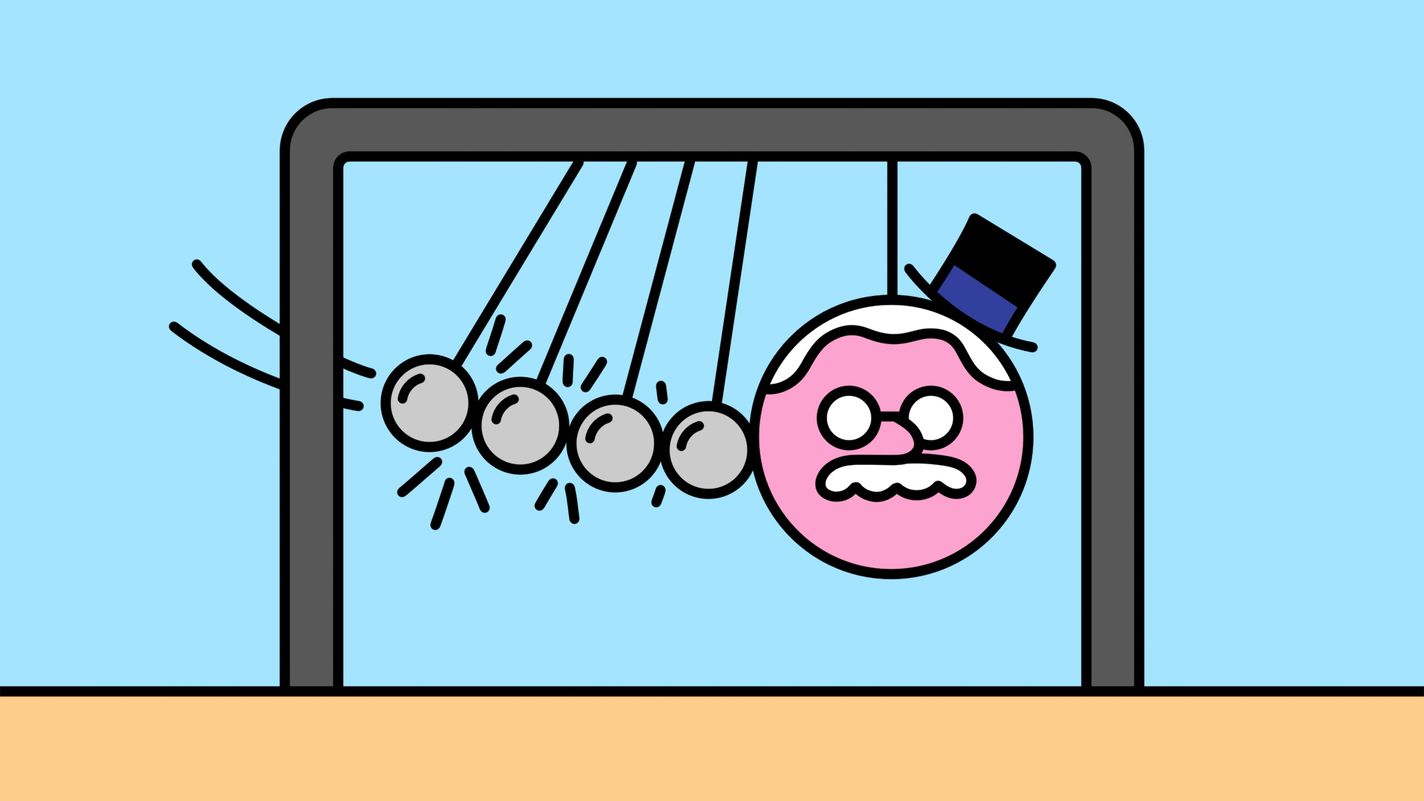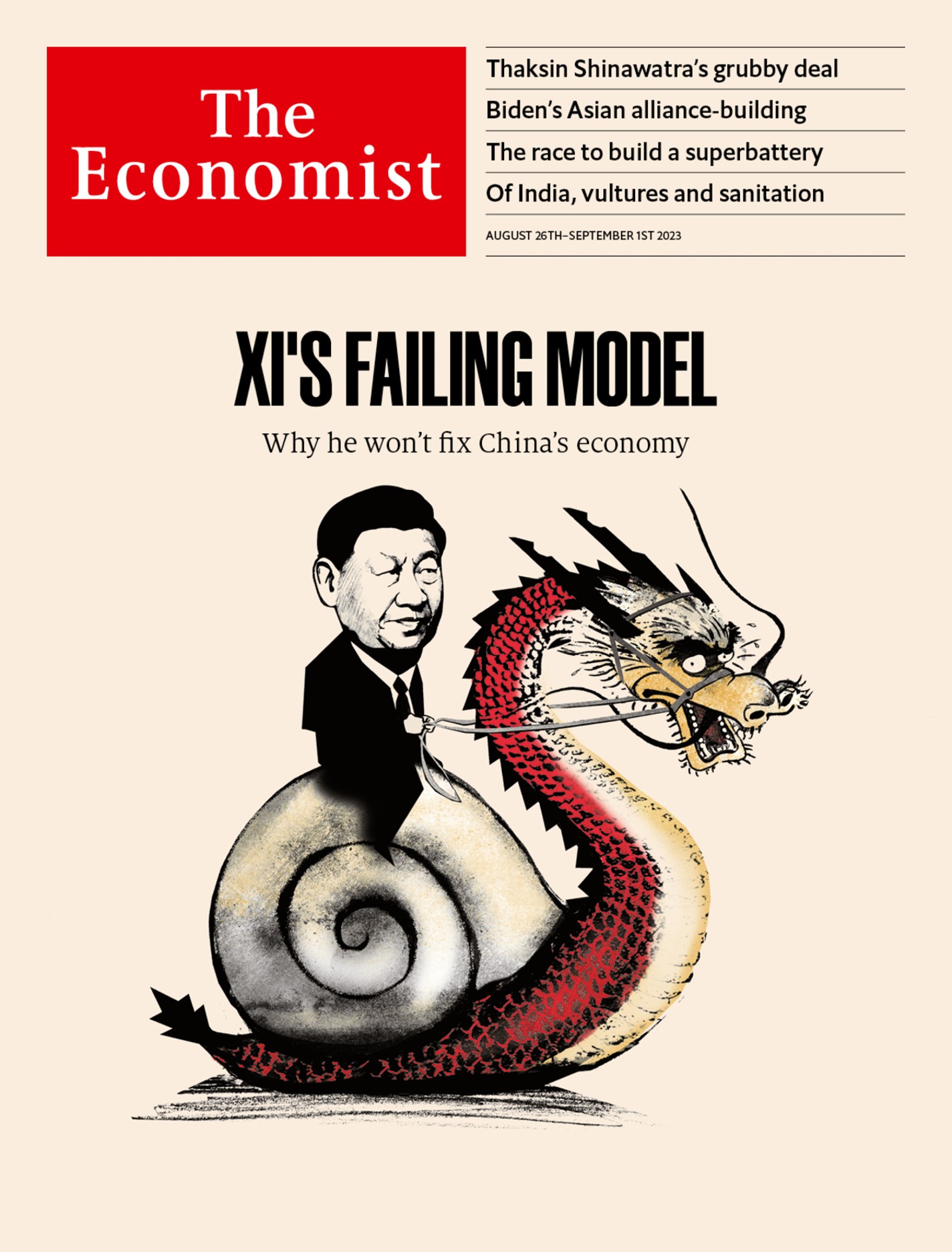AI could fortify big business, not upend it
Upstarts face an uphill battle

Since ChatGPT took the world by storm last year, the internet has been littered with predictions of just how disruptive “generative” artificial intelligence (AI) will be. “Entire industries will reorient around it,” enthused Bill Gates in a blog post earlier this year, in which he declared the technology to be as disruptive as the internet and the microprocessor. From media and education to law and health care, vast areas of human endeavour are expected to be turned upside down.
You may think that the losers from all this would be crusty old incumbents, rather as Kodak and Blockbuster were felled during past waves of technological upheaval. And, sure enough, a new wave of startups has sensed the chance to gain a foothold, crashing onto the scene with ai-powered legal chatbots, virtual doctors, writing assistants and so on. Some of these will make up a new industry of model-builders and innovators that soar to lofty valuations, rather as today’s tech giants ascended during the internet age. In the rest of the economy, however, it is far from clear that the upheaval will consign today’s corporate Goliaths to history. ai looks as likely to fortify reigning champions as to uproot them.
One reason for this is incumbents’ advantages in distribution. That can help the giants maintain their dominance, even if they do not dream up the technology in the first place. Having paired with OpenAI, the creator of ChatGPT, for instance, Microsoft is souping up its ubiquitous Office software with AI features that let workers automate tasks such as writing emails and summarising documents. That will leave little space for rival upstarts. Salesforce and Zendesk, makers of software for sales reps and call-centre agents, respectively, are likewise embedding AI features in their tools. Whereas most companies may not be comfortable turning to a chatbot from an unknown startup for legal advice, they may try a large law firm like Allen & Overy, which is using one to help its lawyers speed up mundane tasks.
Incumbents will also be helped by their access to proprietary datasets, which can be used to tailor AI models to specific markets. Bloomberg, a financial-data firm, has used its trove of information to train a chatbot to help with financial analysis. McKinsey, a consulting giant, has trained a bot on its corpus of intellectual property. Health-care providers could exploit their anonymised medical records, insurers their claims data, and media companies their archival film or print, putting them ahead of upstarts unable to draw on such data.
Another reason to doubt that AI will upend the pecking order relates to how models are accessed. Whereas e-commerce required retailers to create an entirely new infrastructure for selling online, much AI development today is done by model-builders such as OpenAI and tech giants, including Alphabet and Amazon. Retailers, banks and others can link those models to their systems. By making it speedier for incumbents to develop AI-infused offerings, that will limit the opportunity for nimbler newcomers.
A last reason to expect incumbents to prevail is history. Even during the technological upheaval of the past few decades, surprisingly few corporate giants were felled. Only 52 of the Fortune 500, America’s largest companies by revenue, were created since 1990. A mere seven were born after Apple unveiled the first iPhone in 2007. By contrast, 280 were founded before America entered the second world war. The average age of the Fortune 500 has steadily risen over the past three decades, from 75 to 90, defying the idea that the pace of disruption has accelerated in the internet era.
Survival is not guaranteed, obviously. Those that dawdle in their adoption of AI will cede the advantage to faster rivals. Those that ignore it entirely may still go the way of Kodak or Blockbuster. For the Davids of the AI wave, however, the odds are nonetheless fearsome. ■
This article appeared in the Leaders section of the print edition under the headline "Undisrupted"

From the August 26th 2023 edition
Discover stories from this section and more in the list of contents
Explore the editionMore from Leaders

America’s Republicans cannot agree on a speaker. Good
How the GOP could yet, inadvertently, further the national interest

How to make Britain’s health service AI-ready
The NHS should clean up and open up its data. Patients will benefit

Only America can save Israel and Gaza from greater catastrophe
Iran, Russia and China are profiting from the mayhem